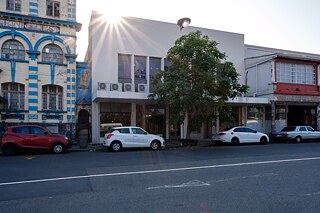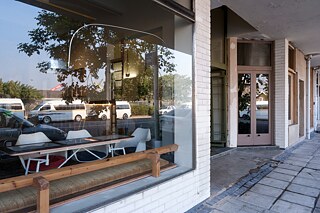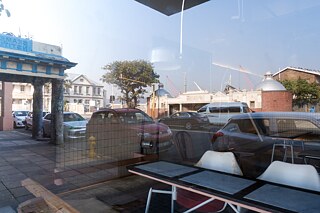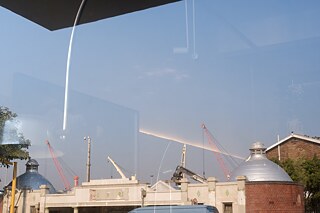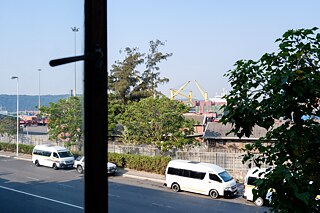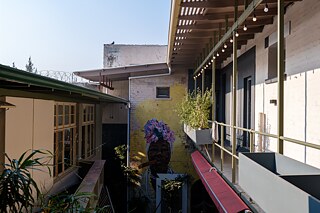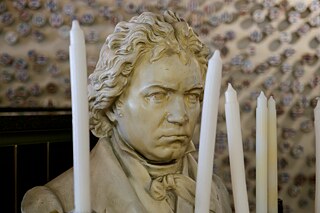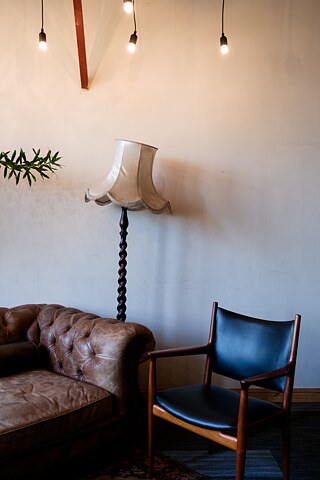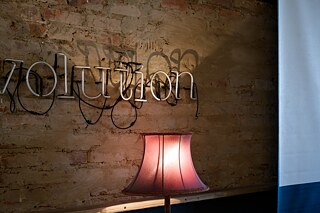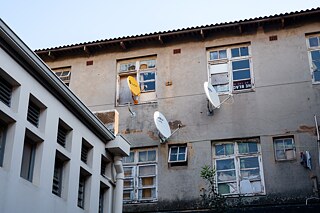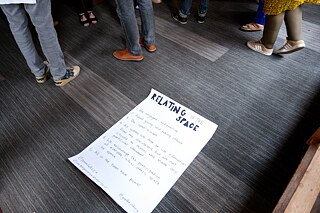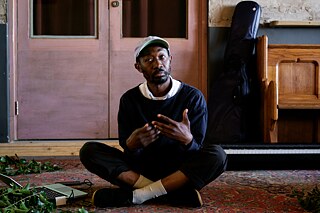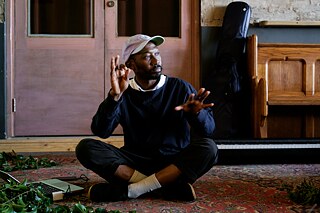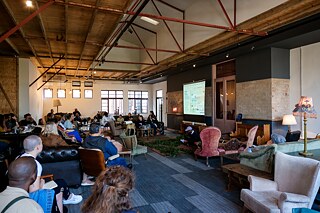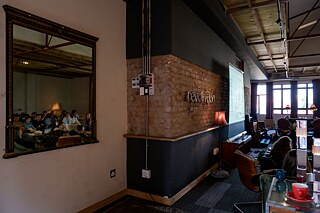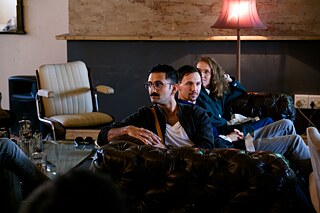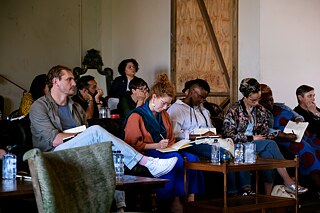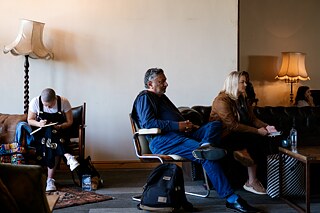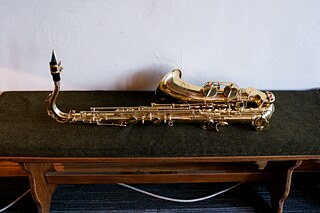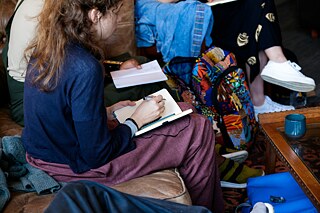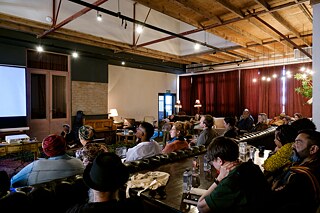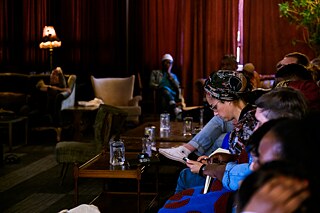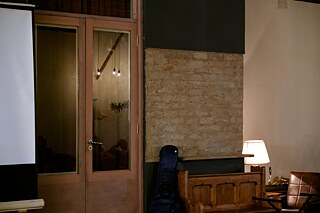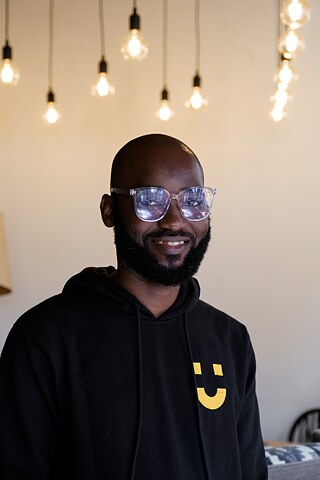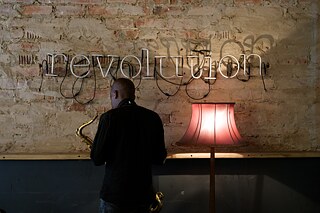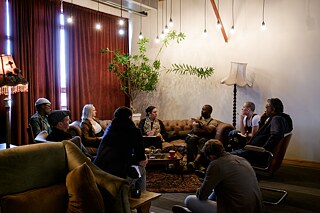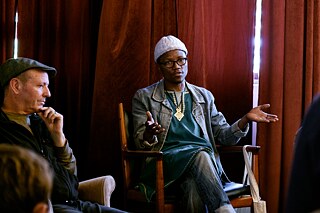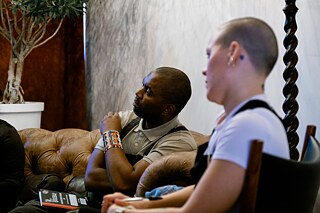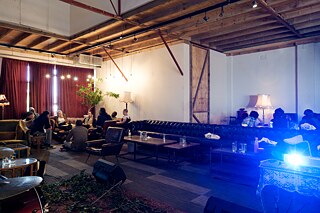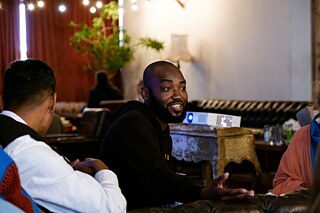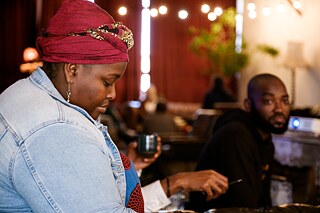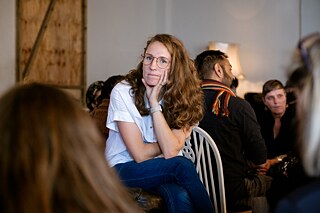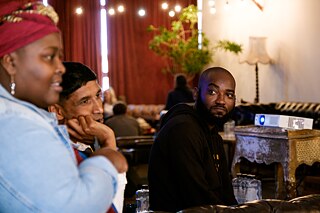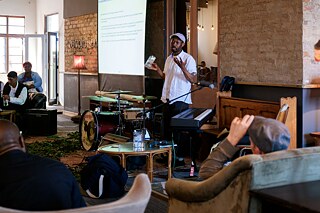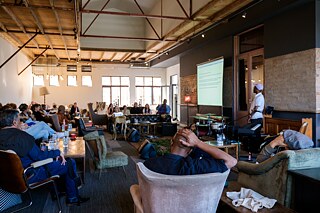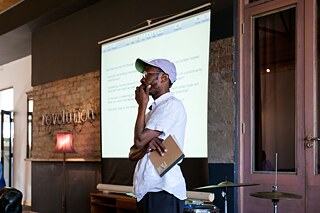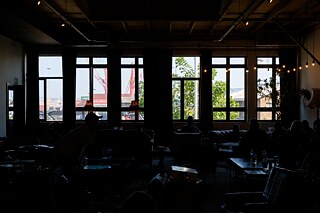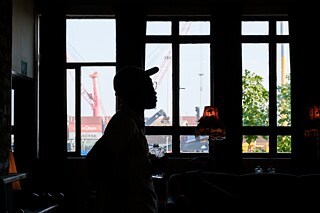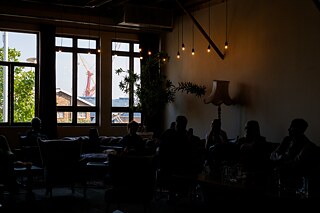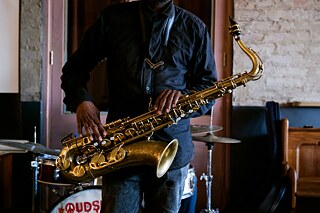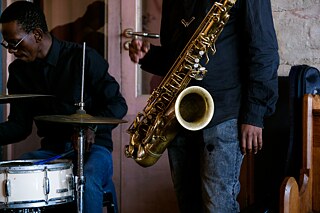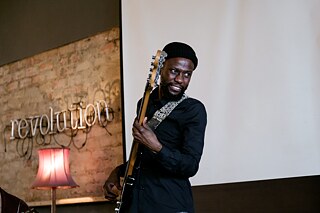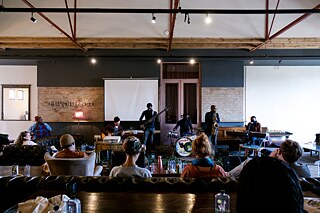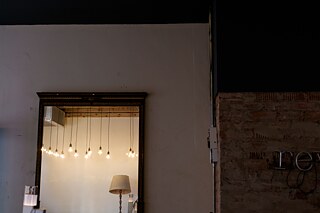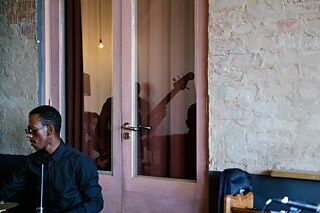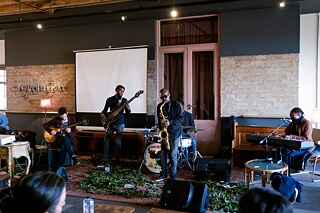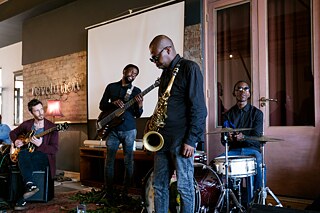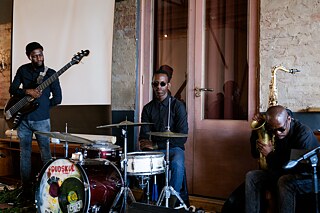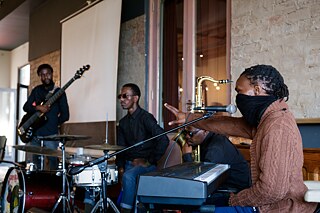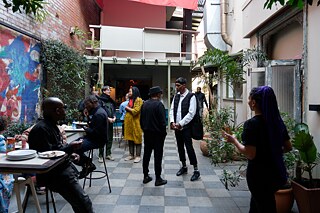The Chairman
Context
- The Chairman characterises itself as “a sophisticated world-class jazz bar that stimulates the imagination and bends all rules and conventions”.
- Part indoor, part outdoor, with quirky decor. Part art project, part social experiment, part restaurant and bar.
- It is a re-imagined space in which today’s programme – which focuses on re-imagining power – can unfold. Russell Hlongwane will engage attendees in departing from recurrent narratives and default modes of engagement.
- It’s a project by DGIT: a young Durban architecture firm that saw an opportunity to design a work of art in “potentially the best urban precinct in KZN: Mahatma Gandhi Rd”.
- The R150 admission fee is deducted from your bill at the end of the night. The dress code is strict and the menu is top-class.
- Surrender Your Booty is the signature cocktail.
Pre-session
- Today’s session will focus on navigation. Russell Hlongwane titles it Umkhombandlela: a Zulu phrase meaning “to show the way”. Umlahlankosi – a plant from the South Coast – has been brought in by Russell Hlongwane to facilitate the contract the animateur will expect the participants to make with and among themselves.
- The plant is used in a traditional Zulu ceremony to bring a recently deceased spirit from its place of death back to the family fold.
- Niamh Walsh-Vorster reminds Hlongwane that not all have been invited to Power Talks to challenge power. Some represent the power that needs challenging.
- Hlongwane demonstrates some of the liberties that can be taken in black-owned spaces with his choice of music. Robert Glasper ushers the guests into a lushly prepared interaction space lined with antique furniture.
In-session
- Numbers don’t appear to have dwindled from yesterday.
- Hlongwane gets a feel for the room by asking for brief introductions of name and profession. Some don’t comply. Niamh notes that all the white women appear to be going first.
- Ndabo Langa – the owner of the establishment – introduces himself as an architect.
- Someone who wasn’t at the provocation session has heard it reported that yesterday’s sessions were strange: neither good nor bad but strange.
- A white male requests that the locus of power be mapped out for him.
- A white lady wants to hear about the struggle of artists.
- Hlongwane is having trouble wrangling participants who are set on dominating the space. Some have spoken 3-4 times before the tea-break while others have only introduced themselves.
- Hlongwane switches deliberately and interchangeably between English nesiZulu.
- Today’s session is slower. It almost feels like the Reflecteur session after yesterday’s discomfort. Will there be sufficient energy for the third and last session?
- Hlongwane plays an audio clip replete with the use of the N-word. Some hide in their notebooks, others walk out. The watchfulness in the room is palpable.
- “What can Durban do with its parochial, small-town energy?” – Hlongwane relates this question to what it means to be small-scale.
- “Think of ways to generate value without rands and cents.” – Hlongwane
Tea-break
- In a brief chat with Hlongwane, I ask how he thinks the session is going: “Where do we go from here?” He answers with a furrowed brow.
- “We are in the meat of the conversation.” – Tea-time comment
Post-tea Prompts
- What are the limiting narratives we need to bury as DBN practitioners?
- How can we build a thriving ecosystem?
- What will we make for ourselves?
- What do we do with today’s ideas?
- Hlongwane breaks the room up into 4 groups. “Please sit with people you haven’t interacted with,” instructs the animateur.
- Even the Gugu Wifi representative takes centre stage in a group of his own choosing.
- “I know I’m terrible and disorganised, but when I get into my shit, I get into my shit.” – Hlongwane buzzing on group interaction.
- “If you don’t wanna spend the rest of the afternoon here, we have to come back.” – Hlongwane after allowing a 2-minute grace period for groups to wrap up discussion.
- The band waits in the wings, smoking cigarettes while Hlongwane sets the stage for group-sharing.
- “I don’t think we’ve confronted the power in this room.” – Hlongwane
- Echoing Hlongwane, “Where do we go from here?” asks the band in the chorus?
Group Insights
- “Comparing DBN to other cities reveals insecurity.” – Group 1
- “Government has failed abjectly to provide outputs for the DBN cultural economy.” – Group 1
- “It is healthy to go out then return to DBN.” – Group 1
- “Potentially DBN is living the dream already, but it may take idiots from without for us to realise this” – Group 2
- “There’s a lot of getting out of the way that older generations need to do.” – Group 3
- “People don’t step down. They often need to be kicked out.” – Hlongwane on dysfunctional institutions.
- “These institutions are dysfunctional by design, therefore they are functioning.” – comment from the floor.
- DUT bears the brunt of negativity as the prime example of a dysfunctional institution.
- “We need to bury power today.” – Group 4
- “How do we subvert instead of undermine?” – Comment from the floor.
- “DBN is a crack in the asphalt from which life grows.” – Comment from the floor.
Public Offers
- Mentorship was offered.
- A space for DUT students was offered.
- A residency was offered.
- A resource centre was offered.
- Business advice was offered.
- Exhibition space was offered.
- Grant-writing tutorials were offered.
- Space to run programmes was offered.
